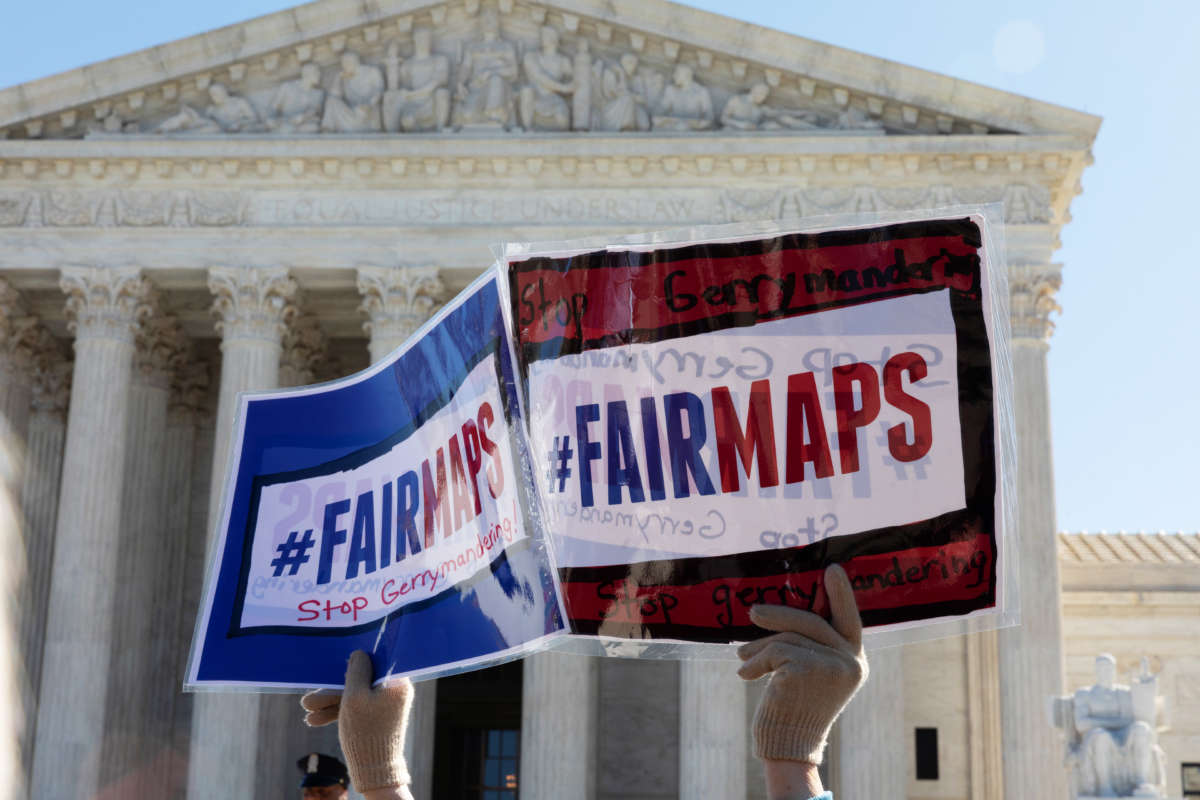As dozens of states across the country prepare to begin or finalize the Constitutionally mandated process of redrawing their congressional districts, most Americans say they would prefer a nonpartisan commission take the lead in producing such maps, rather than state legislatures.
Most maps are redrawn, however, by legislatures, which means they’re often crafted by the political party in power, creating a conflict of interest. In Texas, for example, congressional lines that were recently redrawn and signed into law by Gov. Greg Abbott (R) will likely keep Republicans in the majority within that state’s delegation until at least the next census takes place.
Americans, for the most part, are untrusting of this manner of drawing political maps. An Economist/YouGov poll from August found that 50 percent of voters would prefer an independent commission to draw their own state’s congressional districts, while only 17 percent said they would like legislatures to be in charge.
But in spite of those preferences, most states employ the legislature-drawn method of redrawing maps, with 33 states using that process as their way of doing so. In just eight states are independent commissions used primarily to redraw congressional boundaries, while two other states use a hybrid model.
Unsurprisingly, Americans view the way maps are set to be drawn over the next year with a deeply skeptical eye. Just 16 percent of voters — less than one-in-six in the U.S. — in that same Economist/YouGov poll think their state’s districts will be redrawn fairly. Forty-four percent say they won’t be drafted in a fair way, while another 40 percent are unsure if they will be.
Americans are right to have misgivings about the way maps are being redrawn. According to the non-partisan anti-corruption group RepresentUs, at least 35 states are at risk of having their maps “rigged” — that is, to favor one party over another in an unfair way — during this cycle of redistricting.
“The redistricting laws in these states provide little protection against politicians manipulating district maps for partisan or personal gain,” the organization’s report read. “Unless these systems change in the next few months, more than 188 million people will live with the threat of gerrymandering and rigged maps for the next 10 years.”
The group, like many others with similar aims, had called on Congress to pass the For the People Act, which would have required all states to adopt nonpartisan redistricting processes. However, that bill was blocked by a Republican filibuster in June, and a similar bill, the Freedom to Vote Act (which would have provided safeguards to discourage partisan gerrymandering), was also blocked this past month.
While many states have yet to finish their redistricting processes (with a number of them not set to be completed until next year), six states have already finalized their maps. Court challenges to the boundaries they have drawn, however, have just started.
Several Latinx groups in Texas, for example, have already filed a lawsuit after the state legislature passed the redrawn maps last week. While Texas has gained two additional congressional seats as a result of last year’s census, the legislature did not produce any new seats that represent an area where nonwhite populations are the majority of a district’s population — in spite of the fact that Latinx people accounted for more than half of the state’s growth since 2010.
“Texas has a unique record of disregarding the growth of the Latino community that goes back decades and leads to successful lawsuits” like what was filed last week, said Thomas Saenz, president and general counsel of the Mexican American Legal Defense and Educational Fund, to NBC News. “The maps are typical of that long-standing and unique record of disregard for Latino civil rights.”
Join us in defending the truth before it’s too late
The future of independent journalism is uncertain, and the consequences of losing it are too grave to ignore. To ensure Truthout remains safe, strong, and free, we need to raise $43,000 in the next 6 days. Every dollar raised goes directly toward the costs of producing news you can trust.
Please give what you can — because by supporting us with a tax-deductible donation, you’re not just preserving a source of news, you’re helping to safeguard what’s left of our democracy.
